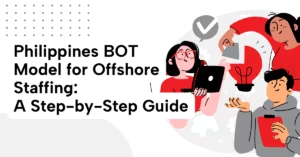The marketing industry today offers professionals greater flexibility than ever before in how and where they work. As you consider your next steps in the field, you may find yourself weighing the pros and cons of remote vs. hybrid marketing careers. But this decision goes beyond simply choosing a workspace; it’s about finding a work structure that truly supports your professional goals, personal needs, and long-term ambitions.
So, which path is the better fit for you?
This guide will break down the key differences between remote and hybrid marketing roles. Through invaluable insights, comparisons, and decision-making tips, you’ll gain the understanding needed to make an informed choice about your marketing career direction.
Related post: Building a Remote Digital Marketing Portfolio: What Employers Want to See
The Growth of Remote and Hybrid Marketing Jobs
Today, a significant portion of marketing roles are remote or hybrid, signaling a broader shift in how companies attract and retain talent. Many organizations are even creating new, permanent positions specifically tailored to flexible work arrangements. This shift aligns closely with evolving workforce preferences, as studies reveal that 91% of employees favor fully remote or mostly remote work setups. Given the strong demand for flexibility, it’s no surprise that marketing teams are adopting these structures to enhance both satisfaction and productivity.
Hybrid work models in marketing typically involve spending two to three days in the office, with the remaining days designated for remote work. This approach balances in-person collaboration with the autonomy of working from home, offering professionals the best of both worlds. On the other hand, fully remote setups provide maximum independence but may require more deliberate strategies to maintain team cohesion and spontaneous participation. Overall, these flexible work setup options are redefining how companies and marketing teams operate in an increasingly dynamic industry.
Marketing Roles by Work Environment Preference
This table helps you quickly see which marketing roles tend to align better with remote setups or are better suited to hybrid marketing jobs, based on typical responsibilities and collaboration needs.

How to Overcome the Challenges of Remote vs. Hybrid Marketing Careers
Both remote and hybrid work models in marketing offer unique benefits but also come with their own set of obstacles. Understanding how to navigate these challenges will help you thrive in your chosen work environment:
Common Challenges in Remote Work
1. Isolation and Disconnection
Marketing often relies on energy, culture, and collaboration. But when you’re working remotely, it’s easy to feel disconnected from your team and the creative flow. Make it a priority to engage in virtual team-building activities, participate in regular check-ins, and create out-of-work communication channels that keep the ideas and camaraderie flowing. If possible, plan occasional in-person meetups to reignite that team spark and align on bigger goals.
2. Communication Barriers
Without face-to-face interaction, it’s easy for marketing feedback or campaign direction to get lost in translation. To avoid misunderstandings, set clear communication protocols and document key discussions. Prioritize video calls for brainstorming sessions, creative reviews, and strategic planning. This further provides much-needed context and supports everyone stay on the same page.
3. Work-Life Boundary
Working where you live can blur the lines between “on” and “off,” leading to burnout that stifles your creative thinking. Establishing a dedicated workspace and sticking to consistent hours can help. Additionally, create a shutdown time at the end of your day, whether it’s closing your laptop or stepping outside. This helps give your mind space to recharge for new marketing strategies.
Hybrid Work Challenges
1. Inconsistent Experiences
In hybrid setups, the experience often varies depending on where you work. Marketers who dial in remotely may feel out of sync with in-office colleagues. To foster equity, advocate for “digital-first” meetings where everyone joins virtually, ensuring all voices are heard and ideas are considered, regardless of location. Shared digital whiteboards and collaborative tools can also help level the playing field.
2. Coordination Complexity
Marketing work is fast-paced and deadline-driven, which can make schedule coordination in hybrid environments tricky. Designate common collaboration days and use project management tools to track timelines and deliverables. Keeping everyone aligned, whether they’re remote or on-site, is key to launching campaigns smoothly and efficiently.
3. Technology Disparities
Marketing requires powerful tools, from design software to analytics dashboards. Disparities between home and office setups can slow you down. Make sure your equipment meets the demands of your role, and don’t hesitate to ask for support. Many companies also offer stipends or standard setups to ensure remote marketers have what they need to perform at their best.

Choosing Your Marketing Career Setup
When comparing remote vs. hybrid marketing careers, consider your personal work style, collaboration needs, and career development goals. The right choice depends on numerous personal and professional factors unique to your situation:
Personal Factors to Consider
Work Style Preferences
How you prefer to work greatly influences your ideal setup. If you’re energized by independent tasks, remote roles may be the best fit; if collaboration fuels your creativity, hybrid might be more effective. Also, consider whether your home environment supports the focus needed for marketing work.
Life Circumstances
Flexibility is key in marketing, where tight deadlines and sudden shifts are common. If you have caregiving duties or personal commitments, remote or hybrid work can significantly improve your work-life balance. Geographic flexibility also allows you to pursue roles regardless of location. Plus, less commute time means more hours for creativity and personal growth.
Career Stage
Where you are in your marketing journey influences the ideal work arrangement. Early in your career, hybrid marketing positions often offer more structured onboarding and mentorship opportunities. Being physically present at least part of the time helps you engage more deeply with team members and clients, easing the learning curve. As you advance, you might prefer the autonomy and focus that remote roles offer, allowing you to manage campaigns and strategies with greater independence.
Professional Considerations
Networking and Visibility
Marketing thrives on connections, whether with clients, colleagues, or leaders. In a remote setup, however, those spontaneous face-to-face moments with leadership and cross-functional teams can be harder to come by, potentially affecting your visibility within the organization. If building relationships is key to your career growth, a hybrid role might strike the right balance, offering both in-person engagement and the flexibility of working remotely. Consider how much direct interaction you need to stay visible, build influence, and keep your marketing career moving forward.
Skill Development
The environment you choose plays a crucial role in developing essential marketing skills such as collaboration, presentation, and communication. Remote work demands intentional digital engagement, while a hybrid setup offers the advantage of both virtual and in-person experiences. Take time to reflect on which setting best aligns with your goals for developing these professional abilities.
Industry Norms
Different marketing specialties embrace remote and hybrid work to varying degrees. For example, digital marketing, content creation, and social media roles often lean toward remote setups, while event marketing or experiential roles may require more on-site presence. Understanding the norms within your marketing niche can ultimately help you choose a work arrangement that supports both your career ambitions and your preferred lifestyle.

The Path to Your Ideal Marketing Career is in Your Hands
Choosing between a remote or hybrid marketing career goes beyond logistics, as it’s about aligning your work environment with your personal preferences, professional goals, and current lifestyle. Each setup offers its own set of benefits and challenges, and understanding which model supports your needs is essential.
What makes today’s flexible work arrangement so powerful is the freedom to adapt. Whether you’re drawn to the independence of remote work or the structure and collaboration of a hybrid setup, lasting success comes from being intentional. Lastly, embrace the advantages of your chosen path, tackle its challenges head-on, and consistently check in with yourself to ensure your work style continues to support your growth.
At the end of the day, the most fulfilling marketing career is the one tailored to you, and you have the power to shape it.
Related post: Top Reasons to Outsource Marketing in the Philippines: Advantages for Business Growth
Frequently Asked Questions (FAQs)
Q1: Is it better to work remote or hybrid?
Whether remote or hybrid work is better depends on your personal work style and needs. Remote work offers flexibility and eliminates commute time, making it ideal for those who value autonomy and a quiet environment. While, hybrid setups provide a balance, allowing face-to-face collaboration and networking while still offering some flexibility. The best option is the one that supports your productivity, lifestyle, and career goals.
Q2: Do hybrid jobs pay more?
Hybrid jobs don’t necessarily pay more across the board, but some roles may offer slightly higher compensation to account for commuting or in-office days. Pay often depends more on industry, job level, and location than on work arrangement. However, hybrid roles can sometimes come with additional perks or allowances that add value beyond the base salary.
Q3: Are there differences in career growth opportunities between remote vs. hybrid marketing careers?
Both paths can offer growth, but hybrid roles may provide more face-to-face interactions with leadership. Nonetheless, a remote marketing job opens the door to global work from home jobs, allowing you to expand your network and gain diverse experiences, if you’re proactive in staying visible.
Q4: Can I switch between remote and hybrid later in my career?
Yes, many professionals transition between hybrid and remote jobs depending on life stages and evolving goals. Whether you’re exploring a remote marketing career or looking to return to a collaborative office setting, adaptability is key.
Q5: What kind of personality suits remote marketing work best?
Independent, self-motivated individuals who are comfortable managing their time and communicating virtually tend to excel in remote roles. If you need frequent social interaction or structure, hybrid might be a better fit.
Advance your career in an environment where professional development comes first, here at One CoreDev IT®. Exciting roles are just a click away; apply now!





